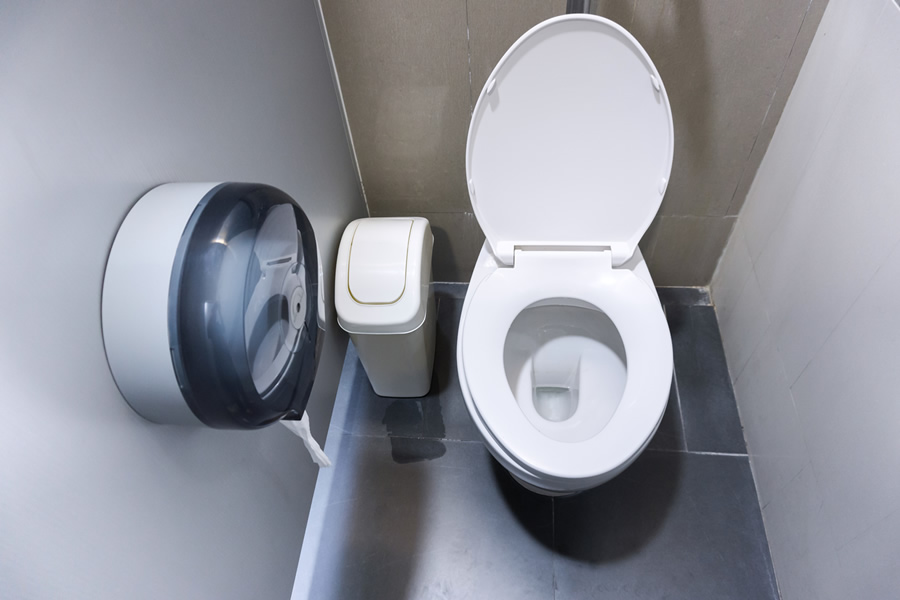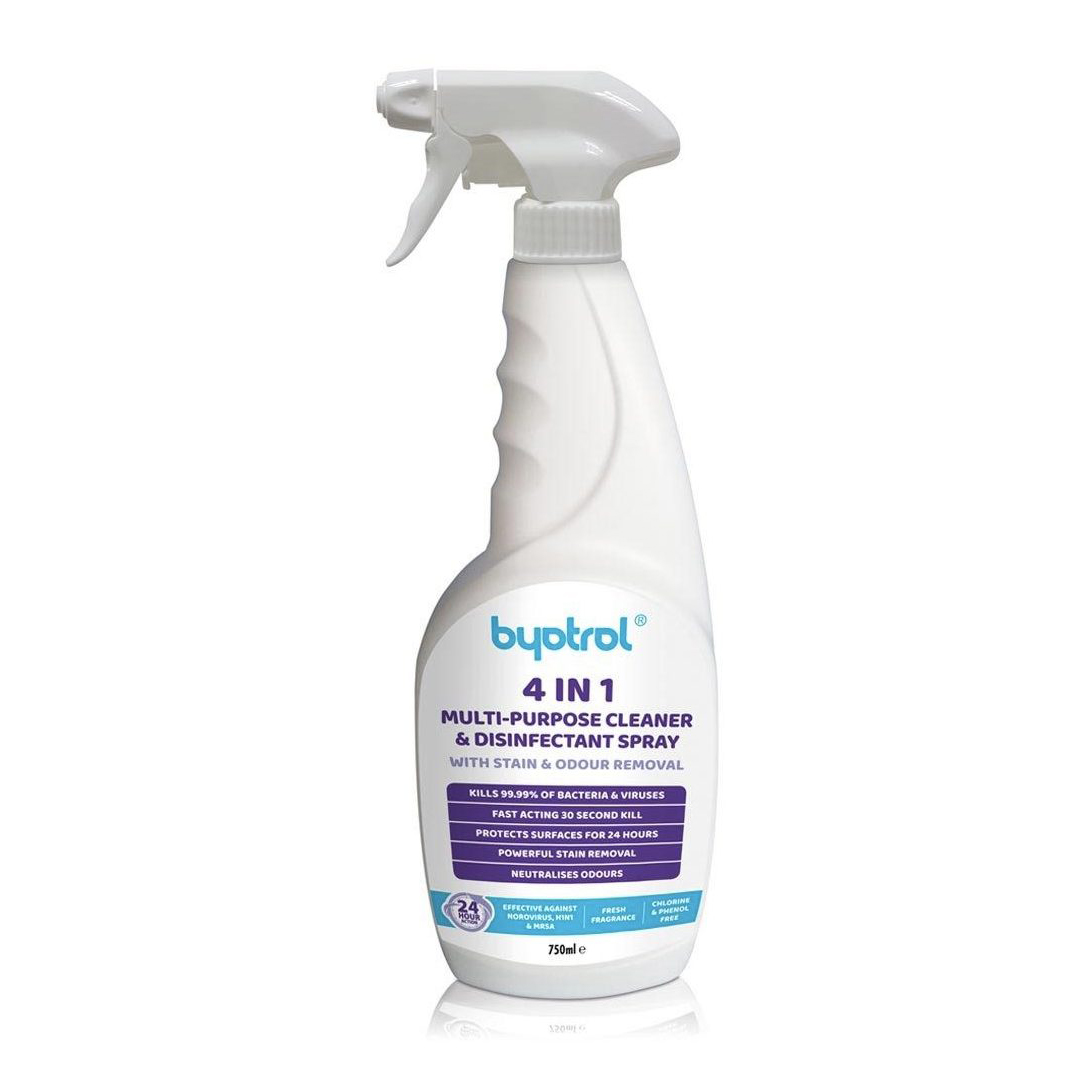Sanitary Bins Are a Legal Requirement In The Workplace

As set out by the Environmental Act, it is a legal requirement to provide staff with a hygienic place to dispose of sanitary waste in workplace bathrooms. It is also vital to maintain a clean and pleasant bathroom for everybody.
What is sanitary waste and how are you supposed to dispose of it in the workplace? We’re here to help you make sense of the law.
Sanitary disposal legislation
Sanitary disposal is governed by legislation according to this legislation, offensive waste is waste that contains bodily fluids, secretions or excretions but is not classed as clinical waste. The regulations state that this waste should be carefully handled to avoid harm, but it does not need to be treated in the same way as clinical or hazardous materials.
What is sanitary waste?
Sanitary waste is a term that covers a range of waste, both liquid and solid, originating from humans and human activities. As an umbrella term, sanitary waste includes:
- Menstrual products
- Nappies
- Anything that has human waste on it
Does a workplace need sanitary bins?
All businesses, regardless of their size, should adhere to these regulations for the long-term welfare of their employees, visitors, and customers. Therefore, every business or workplace (including public buildings) should have adequate provisions for the disposal of sanitary waste.
The sanitary bins should be placed in readily available places: namely in gender-neutral, accessible, and female toilets so that they can be easily found by those people who need them.
Sanitary waste can cause harm to sewers and drains and should not be flushed: it can have serious impacts on the environment as it will eventually pollute water systems and beaches, making up fatbergs and plastic ‘islands’ in the sea. This is another reason why it is crucial that they are disposed of properly.
A lack of sanitary bins means people will have no choice but to flush their sanitary products – which could result in costly repairs.
Sanitary waste disposal in the workplace
As well as providing these necessities, sanitary waste should be managed to the point of disposal by a licenced carrier. These carriers are legally licenced to remove and dispose of sanitary waste. They will keep an audit trail of documents that should always be available to be viewed. Failure to comply with this legislation could risk fines or imprisonment.
Sanitary bins should be sanitised, cleaned and serviced on a regular basis – either monthly or bi-weekly. If containers are used more regularly, they should be emptied more regularly, in order to maintain hygienic and safe bathrooms.
Contact us here to further talk about your washroom hygiene
As set out by the Environmental Act, it is a legal requirement to provide staff with a hygienic place to dispose of sanitary waste in workplace bathrooms. It is also vital to maintain a clean and pleasant bathroom for everybody.
What is sanitary waste and how are you supposed to dispose of it in the workplace? We’re here to help you make sense of the law.
Sanitary disposal legislation
Sanitary disposal is governed by legislation according to this legislation, offensive waste is waste that contains bodily fluids, secretions or excretions but is not classed as clinical waste. The regulations state that this waste should be carefully handled to avoid harm, but it does not need to be treated in the same way as clinical or hazardous materials.
What is sanitary waste?
Sanitary waste is a term that covers a range of waste, both liquid and solid, originating from humans and human activities. As an umbrella term, sanitary waste includes:
- Menstrual products
- Nappies
- Anything that has human waste on it
Does a workplace need sanitary bins?
All businesses, regardless of their size, should adhere to these regulations for the long-term welfare of their employees, visitors, and customers. Therefore, every business or workplace (including public buildings) should have adequate provisions for the disposal of sanitary waste.
The sanitary bins should be placed in readily available places: namely in gender-neutral, accessible, and female toilets so that they can be easily found by those people who need them.
Sanitary waste can cause harm to sewers and drains and should not be flushed: it can have serious impacts on the environment as it will eventually pollute water systems and beaches, making up fatbergs and plastic ‘islands’ in the sea. This is another reason why it is crucial that they are disposed of properly.
A lack of sanitary bins means people will have no choice but to flush their sanitary products – which could result in costly repairs.
Sanitary waste disposal in the workplace
As well as providing these necessities, sanitary waste should be managed to the point of disposal by a licenced carrier. These carriers are legally licenced to remove and dispose of sanitary waste. They will keep an audit trail of documents that should always be available to be viewed. Failure to comply with this legislation could risk fines or imprisonment.
Sanitary bins should be sanitised, cleaned and serviced on a regular basis – either monthly or bi-weekly. If containers are used more regularly, they should be emptied more regularly, in order to maintain hygienic and safe bathrooms.
Contact us here to further talk about your washroom hygiene
- Greenway Supplies
- December 20, 2022
- 7:29 pm
Archived Posts
- February 2024 (2)
- January 2024 (3)
- November 2023 (2)
- September 2023 (2)
- August 2023 (1)
- June 2023 (5)
- May 2023 (6)
- April 2023 (5)
- March 2023 (4)
- February 2023 (3)
- January 2023 (2)
- December 2022 (3)
- November 2022 (6)
- October 2022 (3)
- September 2022 (5)
- August 2022 (4)
- July 2022 (4)
- June 2022 (6)
- May 2022 (1)
- April 2022 (4)
- February 2022 (2)
- January 2022 (1)
- July 2021 (1)
- June 2021 (2)
Video/Blog Categories
- Bars (9)
- Blogs (42)
- Cleaning Supplies (22)
- Coffee Shop (5)
- Kitchen (23)
- Mops & Floor Hygiene (2)
- Uncategorized (1)



